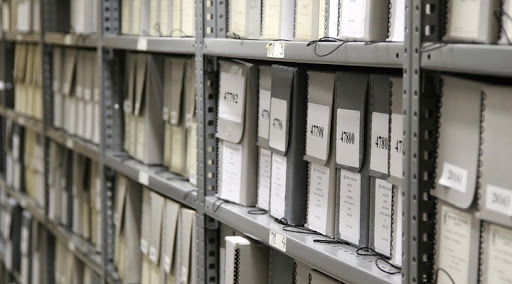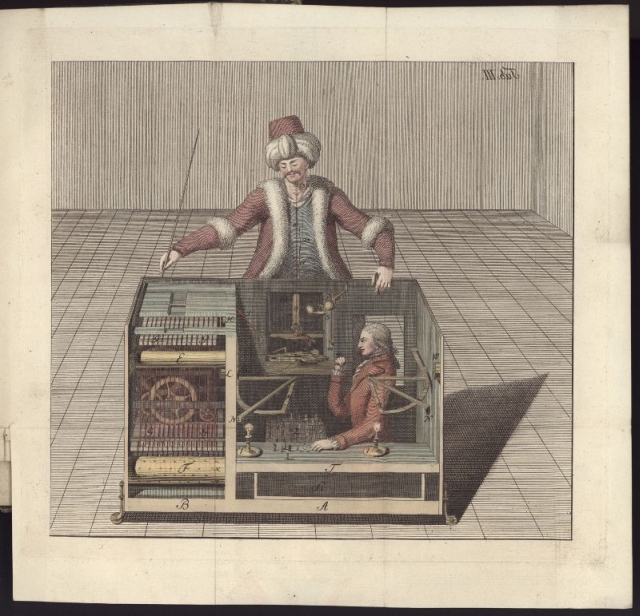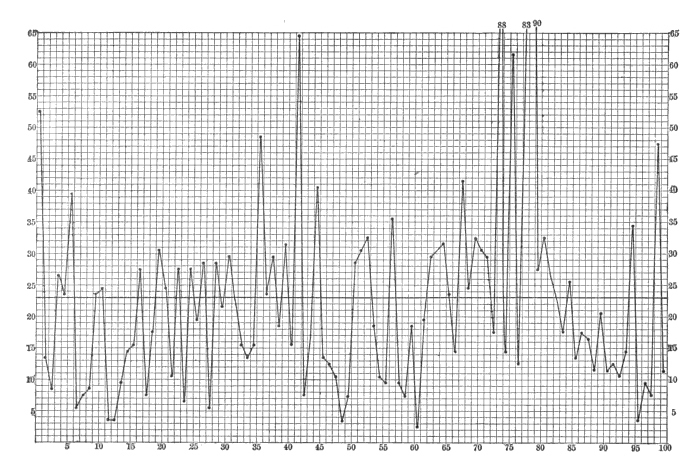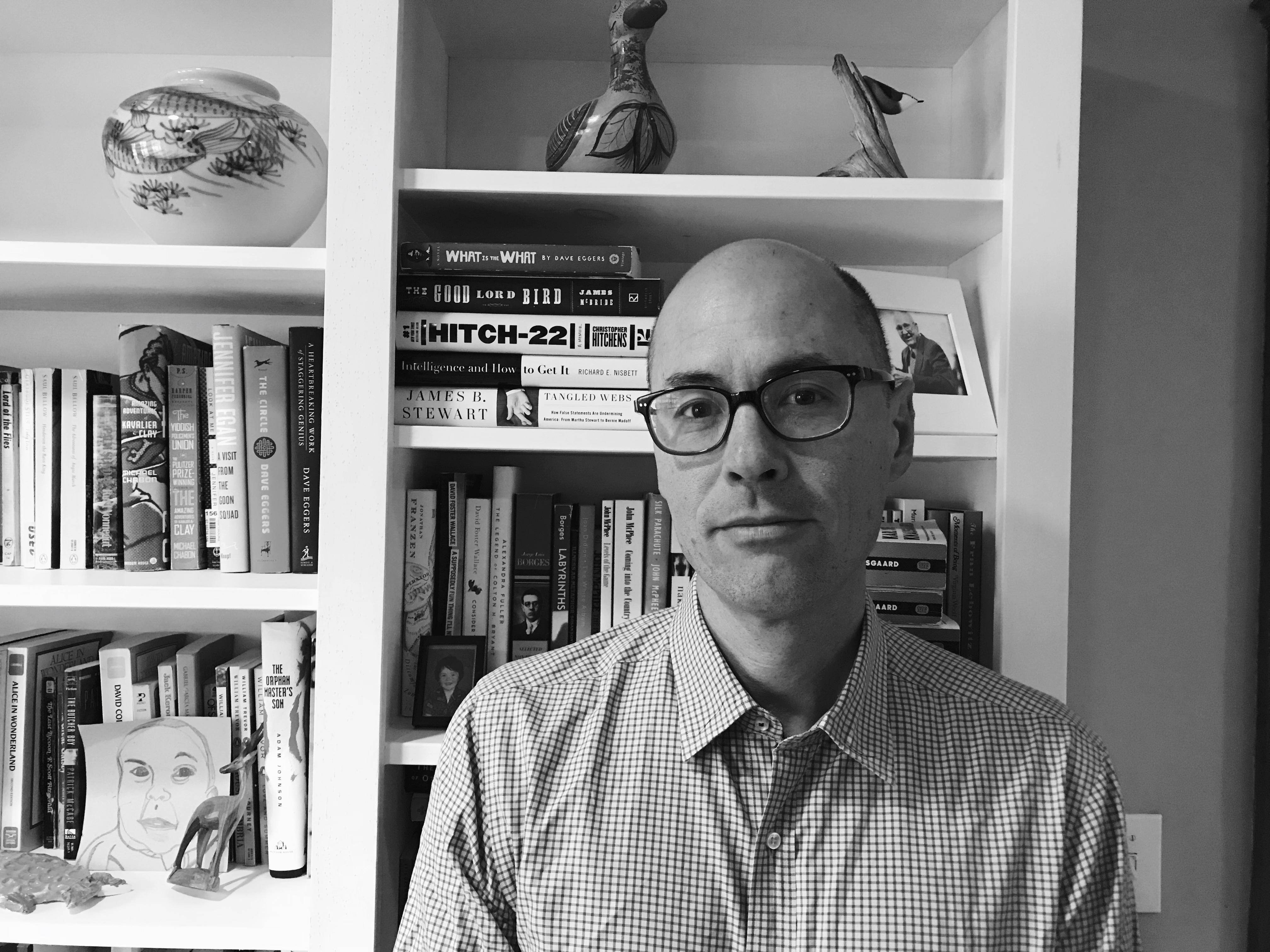
The remaining Media History seminars for 2020 have been canceled because of Covid-19. We’ll do our best to reschedule the talks by Rebecca Roach and Joseph Howley for the 2020-21 series. Stay healthy, everyone!


The remaining Media History seminars for 2020 have been canceled because of Covid-19. We’ll do our best to reschedule the talks by Rebecca Roach and Joseph Howley for the 2020-21 series. Stay healthy, everyone!

Please join us at the next Media History seminar for Rebecca Roach’s talk ‘Media Lives in the Rockefeller Archive: or, How the Humanities Invented Modern Computing’. We’ll be meeting on Wednesday March 18 at 6pm. The meeting will be held at Birkbeck (43 Gordon Square WC1H 0PD). Everyone’s welcome!
‘Media Lives in the Rockefeller Archive: or, How the Humanities Invented Modern Computing’
In these days of dwindling funding for the arts and humanities, I look back to the start of the digital age to argue for the significance of their contribution to the invention of modern computing. I examine the role of mid-century institutions such as the Rockefeller Foundation and specifically its Humanities Division, in supporting early research into theories of communication—theories which would prove vital to the post-World War Two development of computational technologies. Looking to the institutional, biographical and media lives that my research has revealed, I argue for the value of humanities-based models of technological innovation.
Rebecca Roach is Lecturer in Contemporary Literature in the Department of English at the University of Birmingham. Her first book, Literature and the Rise of the Interview, was published by Oxford University Press in 2018. She is currently working on a second book examining the intersection between literature and computing since the Second World War. You can find out more about her here: https://www.birmingham.ac.uk/staff/profiles/english/roach-rebecca.aspx
This seminar is generously supported by the Media History journal, Queen Mary University of London’s English Department, the Institute of English Studies, and the Institute of Historical Research.
We regret to announce that Media History Study Day 2020 is cancelled.
The decision to cancel the event was made for two reasons: several participants are no longer able to attend, and caution regarding the emerging and uncertain Coronavirus situation.
Every effort will be made to reschedule the Study Day in the coming academic year.
We apologise for any inconvenience the cancellation may cause.
****
Media History Study Day 2020 is an opportunity for postgraduate students (PGRs) and early career researchers (ECRs) working on any aspect of media studies to share and discuss their work in a collegial, multidisciplinary environment. ECRs/PGRs working on media from any time period, social/cultural context, or perspective are invited to participate, including, but not limited to, those examining book history, broadcast media, electronic media, ephemera, film, journalism, media theory, newspapers, periodicals, or print culture.
MEDIA HISTORY STUDY DAY 2020: MEDIA LIVES
DATE: CANCELLED (March 18, 2020)
TIME: TBD–19:30
LOCATION: Birkbeck, University of London, 43 Gordon Square, London
KEYNOTE: Dr. Rebecca Roach, University of Birmingham, 18:00–19:30
ABSTRACT DEADLINE: February 1, 2020

The Study Day’s theme, “MEDIA LIVES,” broadly considers the concept of life in the media, embracing everything from interviews, influencers, and self-representation to the lives and lifecycles of old and new media. Topics may include, but are not limited to:
While PGRs/ECRs are encouraged to share work that resonates with the theme, submissions on all media-related subjects are welcome. Participants will give 10-minute presentations on their works-in-progress followed by a 5-minute discussion of a question/problem related to their research. Research posters or presentations in alternative formats will also be considered.
The Study Day is free. It will include a workshop on the ethical implications of conducting research in digital environments/on digital topics facilitated by Dr. Rebecca Roach from the University of Birmingham. Coffee, tea, and lunch will be provided by the Study Day’s sponsors. Participants are responsible for their own travel costs.
_______________
ABSTRACT DEADLINE: Early career researchers and postgraduate students interested in participating in Media History Study Day 2020 should submit a 100-word abstract and 40-word bio to Media.History.Study.Day@gmail.com before midnight on February 1, 2020. If you would like to share a poster or use an alternative presentation format, please include details along with your abstract.
For more information, please visit https://mediahistoryseminar.wordpress.com or contact Ann M. Hale, ann.m.hale@me.com.
_______________
Media History Study Day 2020 is sponsored by Media History, an interdisciplinary journal that focuses on media and society from the fifteenth century to the present; the Media History Seminar, a London-based interdisciplinary group working on a range of media including print, radio, film, and digital communications technologies from various time periods; Queen Mary University of London; the Birkbeck Centre for Nineteenth-Century Studies; the Institute of English Studies; and the Institute of Historical Research.

Please join us at the next Media History seminar for Bernard Geoghegan’s talk ‘AI and Orientalism: From Amazon’s Mechanical Turk to von Kempelen’s Chess-Playing Turk’. We’ll be meeting on Thursday Nov 21 at 6pm. Because of the ongoing strike at Senate House, the meeting will be held at KCL (Virginia Woolf Bldg 3.01, 22 Kingsway, London WC2B 6LE). All are welcome!
‘AI and Orientalism: From Amazon’s Mechanical Turk to von Kempelen’s Chess-Playing Turk’
Through an analysis of the Chess-Playing Turk built in Vienna in the 1770s, and its subsequent reimagining into the present, this talk looks at how difference and alterity, be it racialized, gendered, or bodily, have shaped efforts at figuring, imagining, and building thinking machines.
Bernard Dionysius Geoghegan is a Senior Lecturer in the History and Theory of Digital Media in the Department of Digital Humanities at King’s College London. He previously taught in Berlin, Paris, New Haven, Coventry, and Evanston. You can find out more about him here: https://www.kcl.ac.uk/people/dr-bernard-geoghegan
This seminar is generously supported by the Media History journal, Queen Mary University of London’s English Department, the Institute of English Studies, and the Institute of Historical Research.

Please join us at this year’s first Media History seminar for a talk by Maurice Lee. This event, a joint session with the Nineteenth-Century Studies seminar, will start at 6pm on Tuesday October 15 in Birkbeck Room 106 (the entrance is at 43-46 Gordon Square, London WC1H 0PD). All are welcome!
‘Mass Print + Numbers = Information (Enchantment ÷ Anxiety)’
As mass print culture developed in the nineteenth century, observers conceptualized the proliferation of texts using statistical methods. The entanglement of literary and numerical discourses, what I call “the accounting of literature,” is evident in a range of domains—from sociological studies of reading practices, to data gathered in the publishing industry, to the application of statistical thinking to literary judgment and interpretation. The accounting of literature is typically set in anxious opposition to aesthetics: the subjectivity and enchantments of literature remain, we are told, incompatible with the objectivity and logic of numbers. There are, however, nineteenth-century counter-narratives that have gone largely overlooked, and adventure fiction is one example of how the accounting of literature inspired not only worry but wonder. Taking Robert Louis Stevenson’s Treasure Island as a case study, and projecting counter-narratives forward using Steven Spielberg’s Raiders of the Lost Ark, we can see how aesthetics in an age of information and mass media need not always fear the ascendency of numbers.

Maurice Lee is Professor of English at Boston University, where his work focuses on nineteenth-century American and British literature. He is the author of Slavery, Philosophy, and American Literature, 1830-1860 (Cambridge UP, 2005), Uncertain Chances: Science, Skepticism, and Belief in Nineteenth-Century America Literature (Oxford UP, 2012), and Overwhelmed: Literature, Aesthetics, and the Nineteenth-Century Information Revolution (Princeton UP, 2019). He has also edited The Cambridge Companion to Frederick Douglass (Cambridge UP, 2012). Professor Lee has received awards from the Melville Society, Poe Studies Association, and the Association of College and Research Libraries, as well as fellowships from the NEH, ACLS, and Radcliffe Institute for Advanced Study. You can read more about him here: https://www.bu.edu/english/profile/maurice-lee/

This seminar is generously supported by the Media History journal, Queen Mary University of London’s English Department, the Institute of English Studies, and the Institute of Historical Research.
We’re pleased to announce the provisional schedule for this year’s Media History Seminar. Because of the ongoing strike at Senate House, the seminars will take place at various locations in central London. Everyone is welcome!
“Media History” Programme 2019-20:
Session 1 (Tuesday, October 15, 2019, 6-8pm):
Prof. Maurice Lee (Boston University)
https://www.bu.edu/english/profile/maurice-lee/
Birkbeck Room 106
43-46 Gordon Square, London WC1H 0PD
This event will be a special joint session with the Nineteenth-Century Studies Seminar (https://www.ies.sas.ac.uk/events/research-seminars/nineteenth-century-studies-seminar)
Session 2 (Thursday, November 21, 2019, 6-8pm):
Dr Bernard Geoghegan
https://www.kcl.ac.uk/people/dr-bernard-geoghegan
KCL, Virginia Woolf Bldg 3.01
22 Kingsway, London WC2B 6LE
Session 3 (Wednesday, 18 March 2020, 6-8pm):
Dr Rebecca Roach (University of Birmingham)
https://www.birmingham.ac.uk/staff/profiles/english/roach-rebecca.aspx
Birkbeck, University of London, 43 Gordon Square, London
Session 4 (Thursday, 7 May 2020, 6-8pm):
Joseph Howley (Columbia University)
http://classics.columbia.edu/joseph-howley
Location TBD
This seminar is generously supported by the Media History journal, Queen Mary University of London’s English Department, the Institute of English Studies, and the Institute of Historical Research.
PLEASE NOTE that the location has changed:
Tuesday, March 12, 2019, 18:00
King’s College London
Room 6.01, Virginia Woolf Bldg
22 Kingsway, London WC2B 6LE
Join us at the next Media History Seminar featuring Prof. Andrew Thacker and Prof. Andrew King on the subject of editing reference works on print media.
This talk will address some of the issues that came up when editing the original 3 volumes of the Critical and Cultural Histories, particularly around selection of magazines, periodisation, scope, and the organisation of the volumes overall; also about the next series of volumes, on Global Modernist Magazines, the work for the first volume of which (on magazines in South America and the Caribbean) is nearing completion.
When we consult a reference work instrumentally, we want help to find something we think might exist. The text, however discursive it may appear, is usually organised as a set of categories that lead from the more general to the more precise, and the reader is encouraged by a hierarchy of “switches” or choices to find what she wants. The question that we must address concerns how the reader uses the switches we supply: do we, as initiators of reference works, want the user simply to accept them by making them invisible and effortless, or do we want to highlight the difficulties that each switch actually involves and ask the reader whether the answers she is searching for might result from a casual assumption of the deja connu? Must we choose ourselves choose the switch between rapid but problematic positivism and hesitant, clunky theory, or is there a way to combine them? The talk explores these questions by first discussing the standard reference works on nineteenth-century serials and then outlining the processes that went into the creation of The Routledge Handbook to Nineteenth-Century British Periodicals and Newspapers, its companion volume Researching the Nineteenth-Century Periodical Press: Case Studies and the as-yet-under-construction Work and the Victorian Press and BLT19.co.uk.
NOTE: The March 2019 meeting location has changed to King’s College London, Room 6.01, Virginia Woolf Bldg, 22 Kingsway, London WC2B 6LE (map)
All welcome. Further information about the seminar and this year’s schedule is available on the Media History blog (https://mediahistoryseminar.wordpress.com/).
___
King’s College London / Virginia Woolf Building Map: https://www.kcl.ac.uk/visit/location.aspx?id=7db7139a-c592-4d25-8316-39539061a7ea.

We’re pleased to announce the schedule for this year’s Media History Seminar, jointly run by the Institute of English Studies and Institute of Historical Research. The seminars will take place at Senate House starting at 6pm. Everyone is welcome.
“Media History” Programme 2018-19
Session 1 (20 November 2018): Clare Pettitt, King’s College London
Serial Revolutions: Why 1848 Matters
Stuttering, scattered and various in their outcomes, a series of revolutions erupted in the mid to late 1840s which reached from the Atlantic to Ukraine, from the Baltic to the Mediterranean. By 1851 most of these revolutions had ‘failed’ and Karl Marx was famously to announce in the Eighteenth Brumaire that the people were now “transferred back to a dead epoch.” But rather than just a brief period of international volatility and rebellion which collapsed, failed and capitulated to the reactionary forces of the counter-revolution, 1848 was a game-changer. The problem was that nobody was quite sure what the game had changed into.
It was the increasingly dominant cultural form of seriality that both created the revolutions in the first place, and that ensured the eventual consolidation of many of the demands of the people. Without cheap print and a joined-up transnational media, the revolutions would never have happened the way they did. And without the 1848 revolutions, the American Civil War might not have happened the way that it did. This paper makes a case for the under-recognised importance of 1848, and for the importance of seriality, in establishing a transnational language of human rights.
NOTE: The venue for this talk has changed from Senate House to nearby Meeting Room 3A, Garden Halls, 1 Cartwright Gardens, Kings Cross, London WC1H 9EN.
Session 2 (4 December 2018): Aled Jones, Panteion University, and Luke McKernan, British Library
Collecting Media in National Libraries
Aled Jones, ‘Periodical Collections, Austerity and Grassroots Action: A Greek Example’.
Aled Gruffydd Jones will describe recent attempts to preserve and conserve periodical publications through periods of occupation, civil war, dictatorship and financial hardship in Greece, and will discuss their potential implications for the conduct of archival preservation and research in the Humanities in times of austerity and crisis more generally.
Luke McKernan, ‘Collecting News’.
Luke McKernan will talk about how the British Library is managing the transition from collecting newspapers to collecting news, covering traditional newspapers, their e-versions, web news, radio and television news. He will explore what this means in terms of collection, discovery, access and research.
Room 246, Second Floor, Senate House, Malet Street, London WC1E 7HU
Session 3 (5 February 2019): Evanghelia Stead, Université de Versailles Saint-Quentin-en Yvelines
The Periodical Press: A View from France
‘Media Culture and the Periodical Press: Raising a few Points on Methodological Issues’
Prof. Stead will talk about how to think about periodicals in the overall media culture. Are periodicals a field per se? What is the part they play in media? She will draw on examples from “big” magazines following her Faust I research, look towards the collective volume on Reading Books and Prints as Cultural Objects (Palgrave, 2018), what she Hélène Védrine and I have tried to do around periodicals in l’Europe des revues I and II (2008 and 2018), and discussions in the inter-university TIGRE seminar, which Prof. Stead has been running since 2004.
NOTE: The February 2019 meeting location has changed to King’s College London, Room 6.01, Virginia Woolf Bldg, 22 Kingsway, London WC2B 6LE (map)
Session 4 (12 March 2019): Andrew Thacker, Nottingham Trent University, and Andrew King, University of Greenwich
Editing Reference Works on Print Media.
Andrew Thacker, ‘The Magazines of Modernism: Challenges and Perspectives’
This talk will address some of the issues that came up when editing the original 3 volumes of the Critical and Cultural Histories, particularly around selection of magazines, periodisation, scope, and the organisation of the volumes overall; also about the next series of volumes, on Global Modernist Magazines, the work for the first volume of which (on magazines in South America and the Caribbean) is nearing completion.
Andrew King, ‘Switching: Creating Reference Works for Nineteenth-Century Serials’
When we consult a reference work instrumentally, we want help to find something we think might exist. The text, however discursive it may appear, is usually organised as a set of categories that lead from the more general to the more precise, and the reader is encouraged by a hierarchy of “switches” or choices to find what she wants. The question that we must address concerns how the reader uses the switches we supply: do we, as initiators of reference works, want the user simply to accept them by making them invisible and effortless, or do we want to highlight the difficulties that each switch actually involves and ask the reader whether the answers she is searching for might result from a casual assumption of the deja connu? Must we choose ourselves choose the switch between rapid but problematic positivism and hesitant, clunky theory, or is there a way to combine them? The talk explores these questions by first discussing the standard reference works on nineteenth-century serials and then outlining the processes that went into the creation of The Routledge Handbook to Nineteenth-Century British Periodicals and Newspapers, its companion volume Researching the Nineteenth-Century Periodical Press: Case Studies and the as-yet-under-construction Work and the Victorian Press and BLT10.co.uk.
NOTE: The March 2019 meeting location has changed to King’s College London, Room 6.01, Virginia Woolf Bldg, 22 Kingsway, London WC2B 6LE (map)
This seminar is generously supported by the Media History journal, Queen Mary University of London’s English Department, the Institute of English Studies, and the Institute of Historical Research.

Please join us at the next Media History seminar for a talk by Kate Hayles. We’ll be meeting at 6pm on Friday May 4 in the Senate Room at Senate House.
“From Print to Postprint: How Printing Technologies Became Cognitive”
Beginning around 1950, printing technologies began to acquire cognitive capabilities with the invention of the Lumitype typesetter, which included elements of a digital computer. However, this trajectory has a prehistory from the late nineteenth century, when James Paige invented the Paige Compositor, the machine that famously bankrupted Mark Twain. This talk will analyze why the Paige Compositor was a commercial failure, and starting with the Lumitype typesetter, trace the history of computerized typesetting machines from the 1950’s through to the end of the 20th century. It will explain the distinction between print and postprint and offer an account of why the distinction is crucially important to understanding the nature of textuality in the computer era.
N. Katherine Hayles is the James B. Duke Professor of Literature at Duke University. She teaches and writes on the relations of literature, science and technology in the 20th and 21st centuries. Her books include Unthought: The Power Of The Cognitive Nonconscious (2017), Comparative Textual Media: Transforming the Humanities in the Postprint Era (2013), How We Think: Digital Media and Contemporary Technogenesis (2012), Electronic Literature: New Horizons for the Literary (2008), My Mother Was a Computer: Digital Subjects and Literary Texts (2005), Writing Machines (2002), and How We Became Posthuman: Virtual Bodies in Cybernetics, Literature and Informatics (1999). Her current project is entitled “Cognizing Media: Shifts, Ruptures, Transformations.”
All are welcome. This seminar is generously supported by the Media History journal, Queen Mary University of London’s English Department, the Institute of English Studies, and the Institute of Historical Research. Continue reading
Next week’s Media History seminar has been cancelled due to UCU strike action.
Session 3 (Monday, 12 March 2018):
Prof. Aled Gruffydd Jones (EMIET)
Richard Price (British Library)
Senate House Room G35
The next seminar will be with Kate Hayles on Friday May 4. Details to come.